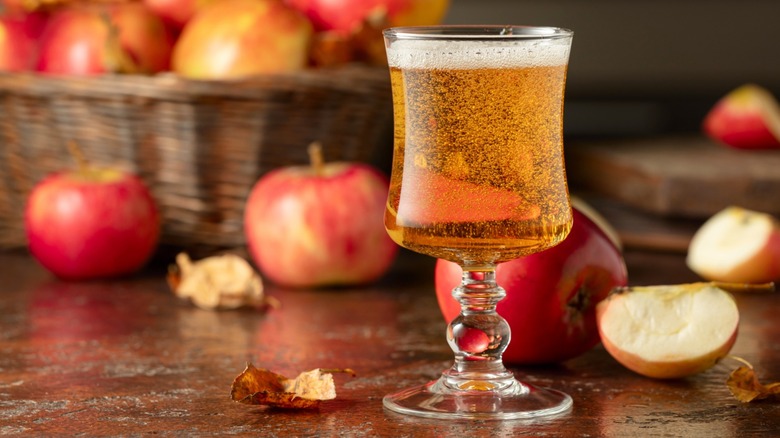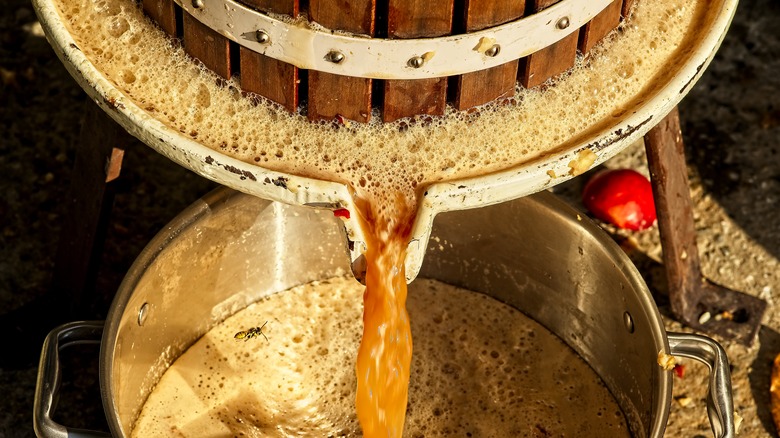How To Find The Good Stuff When It Comes To Hard Cider, According To An Expert
If you're not quite a beer aficionado, you may feel like it's hard to find your place at breweries. Maybe you're not a fan of dark beers or IPAs, maybe you don't even know the difference between the types of beers. Enter hard ciders, the perfect "sort-of" beer for the non-beer lovers in your life. Once you've brushed up on everything you need to know about cider, you'll understand that finding a good one can feel like you've struck gold. According to Jeff Parrish, co-founder of Portland Cider Co. in Portland, Oregon, "your best bet will always be to buy cider from a local or regional cidery — especially one that you can visit and ask directly about their ingredients."
Although hard cider is made from apples and has a distinctly apple-like taste, it shouldn't feel like you're drinking a carton of bubbly, iconic Martinelli's Apple Juice. Parrish also notes that "overly cloying, sweet cider, like you'll find in some of the big commercial brands, is a dead giveaway for concentrated apple juice." Concentrated apple juice may be ideal for children's lunch boxes, but it's certainly not ideal for a good hard cider. Like beer and wine, hard cider should be nuanced in flavor, aroma, in texture. In fact, you can even host your own cider tasting to appreciate these subtleties.
Good hard cider tells a story
The process of making hard cider shares similarities with winemaking. Apples are picked from the trees and left to "sweat" for a few days, which evaporates some of the water content and concentrates their sugars. After sweating, the apples are sorted and cleaned, then categorized for grinding and pressing. Depending on the specific cider maker, different kinds of apples may be mixed to create a single cider. Once the cider is pressed, yeast is added to kickstart the fermentation process, turning sweet apple juice into an alcoholic beverage.
According to Jeff Parrish, "there's a huge difference between cider made with fresh-pressed juice and cider made from concentrate." The flavor of hard cider also varies greatly from brand to brand and country to country. As Parrish notes, "cider is extraordinarily regional." In the United Kingdom, hard ciders tend to be sharp and mature, often aged in oak barrels. Australian and Argentinian ciders, meanwhile, take the warm climates and fertile land into account, producing ciders that are colorful and unique.
Believe it or not, France is the country that produces the most hard cider in the world, with specific regulations that make their ciders truly top-notch. Hard ciders have risen, fallen, and risen again in terms of popularity with the American people, fluctuating between flying off the shelves and gathering dust in the aisles. For now, it's a hit, and according to Parrish, the method for finding the best of the best is simply "support[ing] your local cideries" — or, at least, selecting one made with fresh-pressed apple juice.

